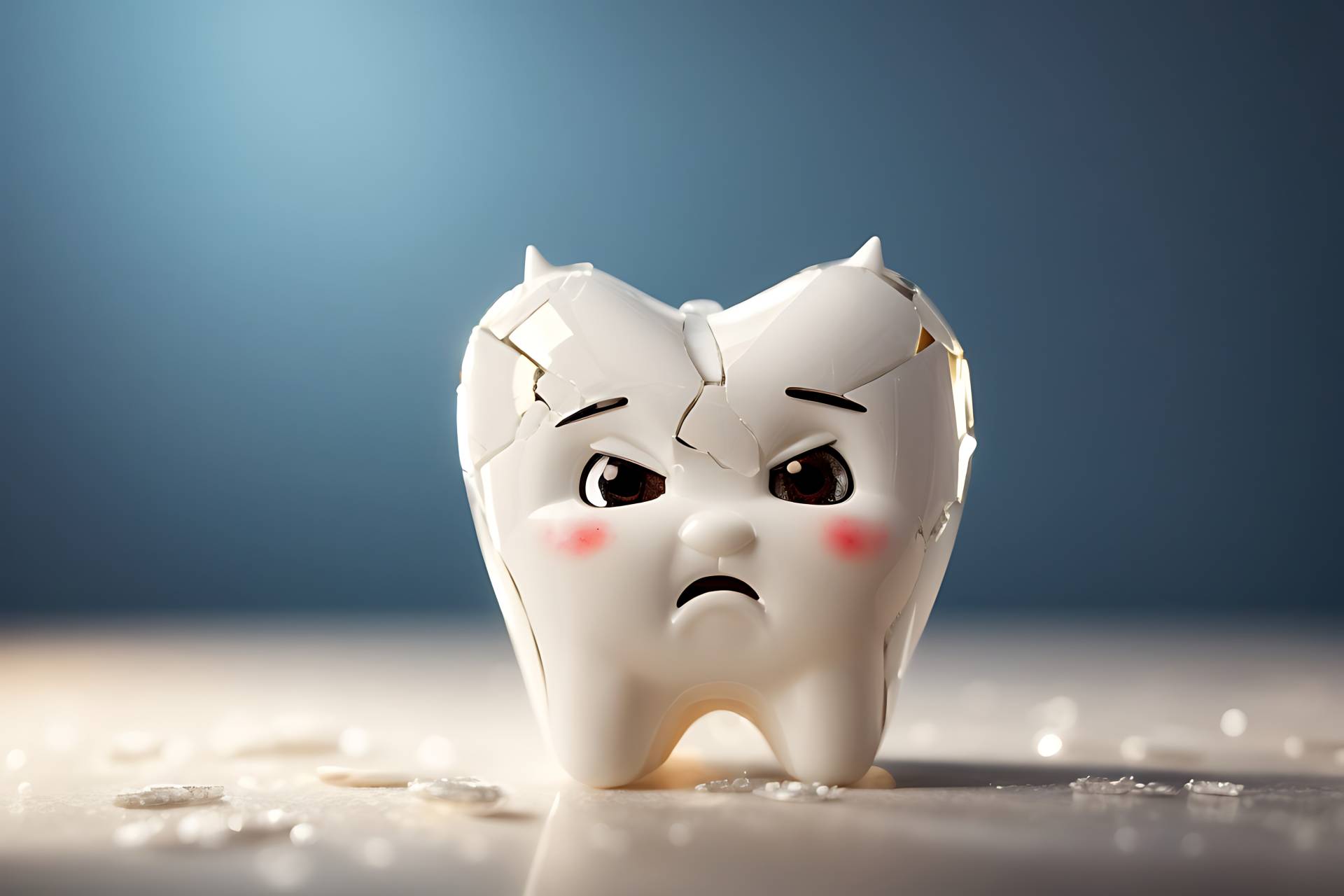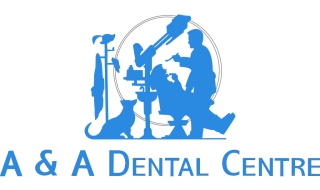Introduction to Cracked Teeth
Definition of Cracked Teeth
Cracked teeth are fractures or splits in the tooth structure, often invisible to the naked eye, that can cause varying degrees of discomfort and dental issues. Seeking professional guidance for cracked teeth treatment is essential to avoid exacerbating the condition. These cracks can extend from the chewing surface of the tooth towards the root, affecting its functionality and integrity. Understanding the nature of these cracks is crucial in addressing them promptly and preventing further complications.
Prevalence and Occurrence
Cracked teeth are a common dental concern affecting individuals of all ages. They can arise due to diverse reasons, including accidents, biting down on hard objects, or even from routine wear and tear. Surprisingly, many people may have cracked teeth without realizing it, as the symptoms might not always be immediately noticeable. However, the prevalence of cracked teeth underscores the importance of regular dental check-ups to detect and manage these issues early.
Importance of Timely Cracked Teeth Treatment
Timely intervention for cracked teeth treatment is critical to prevent the escalation of dental problems. Ignoring these cracks can lead to severe pain, infections, and even tooth loss. Early identification and appropriate treatment significantly improve the prognosis, allowing for less invasive procedures and preserving the natural tooth structure. Addressing cracked teeth promptly not only ensures oral health but also prevents potential complications that may arise if left untreated.
Causes of Cracked Teeth
Trauma or Injury
One of the primary causes of cracked teeth is trauma or injury to the mouth. Accidents, falls, or sports-related impacts can exert excessive force on the teeth, leading to fractures or cracks. Even minor accidents can result in hairline fractures, affecting the structural integrity of the tooth. Prompt evaluation and cracked teeth treatment following any dental trauma are crucial to prevent further damage.
Chewing Habits
Unintentional habits like biting hard objects, such as ice, pencils, or unpopped popcorn kernels, can contribute to cracked teeth. Constant pressure from chewing on hard substances weakens the tooth enamel, making it more susceptible to cracks. Being mindful of chewing habits and avoiding exerting excessive force on teeth can significantly reduce the risk of developing cracked teeth.
Tooth Decay
Untreated tooth decay weakens the tooth structure, making it more prone to cracking. When cavities are left unattended, they compromise the integrity of the tooth, making it more susceptible to fractures. Regular dental check-ups and proper oral hygiene practices, including brushing and flossing, are essential in preventing decay and subsequently reducing the likelihood of cracked teeth.
Teeth Grinding (Bruxism)
Bruxism, the unconscious grinding or clenching of teeth, puts immense pressure on the teeth, leading to cracks or fractures over time. Individuals suffering from bruxism often experience weakened enamel due to the constant force exerted during grinding, making their teeth more susceptible to cracks. Wearing a night guard and stress-reduction techniques are common methods to manage bruxism and lower the risk of cracked teeth.
Temperature Changes
Sudden and extreme changes in temperature, such as consuming hot food or beverages immediately followed by cold ones, can cause the tooth enamel to expand and contract rapidly. Over time, this expansion and contraction weaken the tooth structure, potentially leading to cracks. Being mindful of the food and drinks consumed and avoiding abrupt temperature shifts can help in preventing cracked teeth due to thermal stress.
Symptoms: Know Cracked Teeth Treatment
Pain Sensitivity
Cracked teeth may lead to pain when eating or drinking hot or cold stuff. Even air touching the tooth might cause discomfort, making it sensitive. You know you need to check and get a cracked teeth treatment plan when pain goes high.
Discomfort While Chewing
You might feel uneasy or a bit of pain when chewing, especially on the cracked tooth. It could make eating your favorite foods tough.
Increased Sensitivity to Hot/Cold
A cracked tooth might react to hot or cold drinks or food more than usual. That sudden zing of pain could indicate a crack.
Pain When Biting or Releasing Bite
Biting down or releasing the bite might hurt, especially on that cracked tooth. It’s like a sharp pain when you put pressure on it.
Visible Cracks or Fractures
Sometimes, you can actually see a crack or fracture on the tooth. It might be a tiny line or something more obvious. Seeing it can be a sign of a cracked tooth and you know now it’s time for your cracked teeth treatment.
Diagnosis of Cracked Teeth
Dental Examination
The dentist will check your teeth thoroughly, looking for any signs of cracks or damage. They’ll ask about your symptoms too.
X-rays and Imaging
Special pictures of your teeth (X-rays) help the dentist see if there’s a crack that’s not visible. These images show what’s happening inside the tooth.
Symptom Assessment
Explaining how your tooth feels helps the dentist understand what’s going on. They’ll ask about any pain, sensitivity, or discomfort you’ve been having to figure out if it’s a cracked tooth.
Treatment Options for Cracked Teeth
Dental Bonding
Dental bonding involves applying a resin material to the cracked tooth, bonding it in place with a special light. It helps to restore the tooth’s appearance and function, but it’s usually used for minor cracks.
Dental Crowns
Crowns are like caps that cover the cracked tooth entirely, protecting it from further damage. They’re custom-made to fit your tooth and are a great option for more severe cracks.
Root Canal Therapy
When a crack reaches the tooth’s pulp, causing pain or infection, a root canal might be needed. The damaged pulp is removed, and the tooth is sealed to prevent further issues.
Tooth Extraction
If the crack is too severe and can’t be saved, the tooth might need to be removed. This option is usually the last resort when other treatments won’t work.
Inlays and Onlays
These are custom-made fillings that fit into the cracked tooth. They help restore its shape and structure, providing extra support.
Preventive Measures for Cracked Teeth

Regular Dental Check-ups
Visiting the dentist regularly helps catch any early signs of cracks or dental issues. It allows for prompt treatment before things worsen.
Protective Mouthguards
For those who grind their teeth at night, wearing a mouthguard can protect teeth from the pressure and prevent cracks.
Avoiding Chewing Hard Objects
Steering clear of hard candies, ice cubes, and similar hard stuff reduces the risk of cracking teeth. It’s a small change that can make a big difference.
Addressing Teeth Grinding
Managing stress or using a mouthguard can help control teeth grinding, reducing the chances of cracks.
Maintaining Oral Hygiene
Brushing, flossing, and using mouthwash regularly keep teeth healthy and strong, reducing the likelihood of cracks due to decay or weakness.
Home Remedies for Immediate Relief: Cracked Teeth Treatment
Rinsing with Warm Salt Water
A simple but effective remedy is rinsing your mouth with warm salt water. This can help reduce inflammation and alleviate discomfort around the cracked tooth. Mix a teaspoon of salt in warm water and swish it gently in your mouth for a minute or two.
Using Over-the-Counter Pain Relievers
Over-the-counter pain relievers like ibuprofen or acetaminophen can help manage the pain associated with a cracked tooth. Always follow the recommended dosage instructions and consult a healthcare professional if needed.
Applying Cold Compress
Applying a cold compress to the cheek outside the affected area can provide temporary relief. Wrap a bag of ice or a cold pack in a cloth and hold it against your cheek for short intervals to numb the area and reduce swelling.
Avoiding Extreme Temperatures
Sensitivity from a cracked tooth can worsen with extreme temperatures. To prevent discomfort, avoid consuming extremely hot or cold foods and beverages until you receive proper cracked teeth treatment.
Using Temporary Dental Cement
Temporary dental cement, available at pharmacies, can cover the exposed area of a cracked tooth, providing a barrier that may reduce sensitivity and protect the tooth temporarily. Follow the instructions carefully for safe application.
Complications of Ignored Cracked Teeth
Risk of Infection
Ignoring a cracked tooth can invite bacteria into the vulnerable area, leading to infection. Bacteria can penetrate the crack, causing an abscess or more severe infections that might spread.
Further Tooth Damage
Unchecked, a crack can extend deeper into the tooth, potentially compromising the tooth’s structure. This can result in larger portions of the tooth breaking off or even a complete fracture.
Potential Tooth Loss
Severe cracks, if left untreated, can progress to a point where the tooth cannot be saved. In such cases, extraction might be the only viable option.
Chronic Pain and Discomfort
A cracked tooth left untreated often leads to persistent discomfort, affecting daily activities like eating and speaking. The ongoing pain can become chronic and disruptive.
Impact on Oral Health Overall
Neglecting a cracked tooth not only affects the specific tooth but can also influence overall oral health. It might lead to problems with neighboring teeth and impact the alignment of the bite, causing further dental issues if not addressed promptly.
Addressing Dental Emergencies in Vancouver
We understand the urgency that dental emergencies demand, especially when it comes to issues like cracked teeth. In Vancouver, swift and specialized care is crucial to alleviate pain and prevent further complications. At AADentalClinic, we prioritize immediate attention for emergencies, providing comprehensive care to swiftly address concerns such as cracked teeth. Our commitment lies in ensuring prompt evaluation and effective treatment to preserve oral health and offer relief to those facing dental emergencies Vancouver.
Trusted Dental Care in Vancouver
At our esteemed dental clinic Vancouver, we provide a comprehensive range of services beyond emergency care, catering to routine check-ups, preventive care, and advanced treatments. We prioritize a holistic approach to dental health, emphasizing regular examinations to detect issues like cracked teeth at their earliest. As a reliable dental clinic in Vancouver, we stand as a trusted partner, delivering optimal oral health care for individuals and families in the region. Whether it’s immediate attention for emergencies or routine dental care, we are dedicated to serving the diverse dental needs of the Vancouver community.






